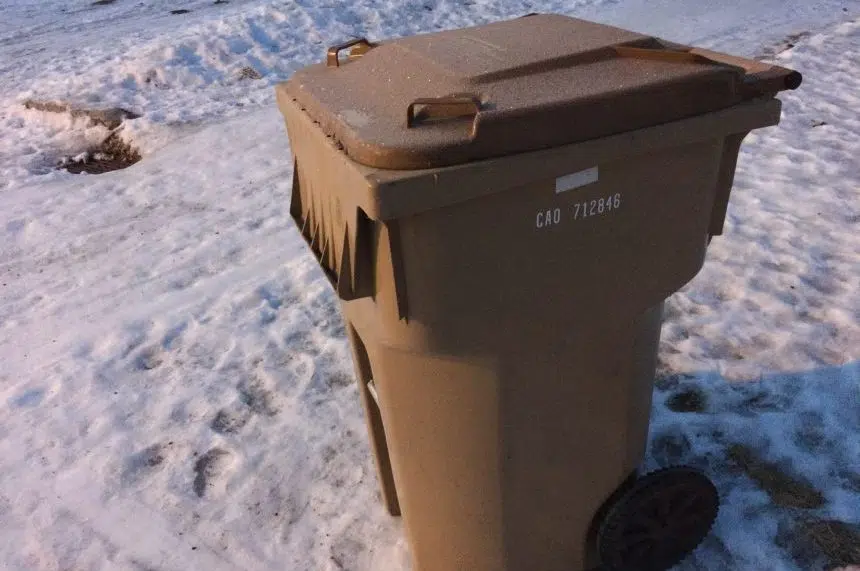Starting in 2024, Regina residents will pay for garbage collection through a user-pay model on their utility bill rather than through property taxes.
City council passed the curbside waste services funding policy in a 9-2 vote Wednesday, with councillors Cheryl Stadnichuk and Andrew Stevens voting against the change.
Changing to a user-pay model system comes with encouragement for everyone to cut down on household waste. The city says citizens of Regina produce 60 bags of waste per year per person, which is 25 per cent higher than other jurisdictions.
Different-sized bins will start to pop up on the streets of Regina beginning next fall, and residents will have a few months to decide which size of bin suits them best.
Residents will have a choice between a 240-litre bin costing $193.45 per year or a 360-litre bin costing $284.60 per year. The new system will incorporate three types of bins for garbage, recycling and greens.
“There is a four-month grace period, and during that time we are going to help educate people on the three different streams,” said Kurtis Doney, the City of Regina’s director of water, waste and environment. “(We’ll teach people) how to use them and how to divert the waste so that they can reduce the solid waste, which will keep the price down.”
“We know that we have to do some education,” said Deputy Mayor Lori Bresciani. “We are one of the last medium-sized cities to get this program going.”
With the rollout of green bins around the corner, encouragement for people to filter their waste will hopefully extend the life of the city’s landfill.
A new landfill costs $50 million to $100 million to replace. The current landfill reportedly has 20 to 30 years left in its lifetime and the inclusion of the green carts in the new program will help extend it.
The waste diversion rate is currently at 18 per cent, a far cry from the city’s target of 65 per cent.
Amendments were proposed by Stevens, who wanted a recommendation that would “implement a Waste Utility Rebate Program for senior citizens or people living with disabilities” to include all low-income residents and instead of just seniors and people living with disabilities.
Stevens also called to change the model to reapply from 12 months to 24 months to “reduce the burden on lower-income residents to constantly have to apply to justify their impoverishment.”
The amendment was carried 7-4, with Bresciani, Coun. Bob Hawkins, Mayor Sandra Masters and Coun. Landon Mohl against.
At the beginning of council, Stadnichuk moved an amendment to move the user-pay model system to a pay-as-you-throw garbage system, so recycling and food and yard waste would stay under the property tax system, and garbage would be on a user-fee system.
Stadnichuk said she thought that model was more “fair and equitable” to seniors and people who live alone and cannot pay rising utility bills, and to those who are not going to reach the low-income cut-off line.
The motion failed 6-4, with Stadnichuk, Coun. John Findura, Stevens, and Coun. Dan Leblanc supporting the motion.











